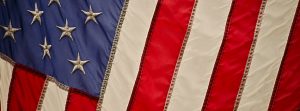 If you’ve grown up in the United States in the 20th or 21st century, you might miss how revolutionary the religious liberty in the Constitution is. Until 1791, no national government in human history had officially declared that there was no established religion and people were free to practice whatever religion, and almost every state had some official or semi-official religion. Even the French Revolution, at about the same time, established an official religion of reason rather than permit religious freedom.
If you’ve grown up in the United States in the 20th or 21st century, you might miss how revolutionary the religious liberty in the Constitution is. Until 1791, no national government in human history had officially declared that there was no established religion and people were free to practice whatever religion, and almost every state had some official or semi-official religion. Even the French Revolution, at about the same time, established an official religion of reason rather than permit religious freedom.
What brought this about? First, many of the original 13 Colonies were founded by groups in England who practiced a religion other than state-sponsored Anglicanism in Great Britain. The British government wouldn’t tolerate them at home but would let them live far away if their religion was that important. Second, Christianity is quite unique among world religions in that it is based on personal belief not corporate belonging. From the beginning, Christians lived in opposition to the official religion. Other groups would be fine under Roman rule because Romans would allow you to worship your god so long as you also worshiped their god – a fine proposition for a polytheist but not a Christian. Third, enlightenment philosophy, despite his defects in other areas, was able to see the religious liberty in a way that wasn’t previously clear.
The first amendment states, “Congress shall make no law respecting an establishment of religion, or prohibiting the free exercise thereof.” Thomas Jefferson wrote this amendment and argued for a strict interpretation. In 1808, he told the Methodist Episcopal Church of Pittsburgh: the constitution “Has not placed our religious rights under the power of any public functionary.” So it is a right beyond the scope of a government official to give or take. To the Danbury Baptists in 1802, he interpreted the first amendment as, “Building a wall of separation between Church & State.” This phrase has been used unfairly against religious people in recent years but the context of the letter gives us insight in Jefferson’s thought and the meaning of this phrase. Baptists in New England were persecuted by the established religion, Congregationalism as in Connecticut, and a delegation came to the White House and presented Jefferson a 1,235 pound cheese (yes, really). He wrote this letter as a way to repay them the favor: arguing for their ability to freely practice their own religion. For Jefferson the wall of separation was to prevent the state from infringing on anyone’s right to practice their own religion.
Throughout its history, the United States has made accommodations for people’s religion not just with regard to worship but also as the regard to morality: Quakers have generally been exempt from the draft or been given non-combatant roles because absolute pacifism is part of Quaker morals; Jehovah’s Witnesses are allowed to refuse blood transfusions because they interpret a verse about eating blood to also refer to transfusions; cities can’t require a permit to distribute pamphlets in public as some cities would do to stop some groups from evangelizing as they felt morally impelled to; and the Supreme Court ruled in 1972 that unemployment benefits cannot be denied someone for refusing to work 1 day a week for religious reasons.
In recent years, the question of religious liberty has come up when dates or the federal government had tried to pass laws forcing medical professionals to be involved in morally objectionable medicine. Can a doctor refuse to grant a person a contraception prescription if he finds contraception immoral? Now, there’s a threat to move beyond just those in the medical field to force every Catholic employer to provide their employees with contraception and abortion through their medical insurance. However, impositions of state morality overtop of contrary individual religious morality go against the American tradition of religious liberty. We need to pray both that the courts uphold our religious liberty and that government attitudes change in favor of religious liberty. Right now, there is the threat of losing this American innovation and tradition.
Prayer for Religious Liberty:
Let us pray,
Dear Father in heaven, you have given us our great nation where we can live in liberty and justice. You have filled American history with wise men will of shown respect for your divine law in crafting human laws. You have helped form an American spirit that respects differences and the religious morals of each. Help us and help our nation to continue its tradition of religious liberty and grant us each the strength to stand up for the truth of our faith even when this isn’t popular or when it’s difficult. We ask this through Christ our Lord.
Amen.

Superb analysis Father.
Thank you.
What is the situation in Canada?
I have no background on that.
Sadly nations founded in the Western Hemisphere did not follow this great ideal.
The martyrdom of Miguel Pro, S.J. in Mexico comes to mind.
You have a great gift of communicating very complex subject matter into a clear and understandable narrative. God bless you.